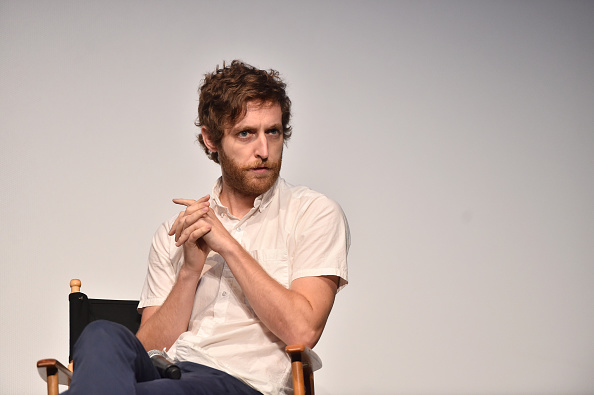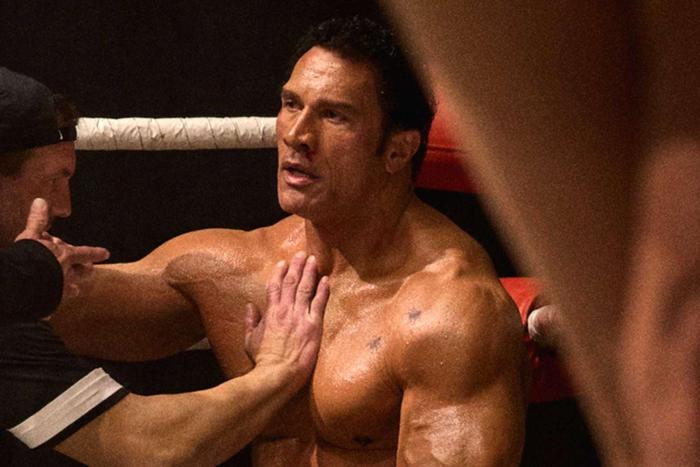
Here’s What’s Missing in the Conversation About the Controversial Second Episode of ‘The Rehearsal’
By Lindsay Traves | TV | April 28, 2025

Nathan Fielder’s mega stunts have often attracted media attention, and that’s by design. Whether it was tricking the international media into thinking a pig saved a drowning goat or launching “Dumb Starbucks” and being confused with Banksy, so much of his absurdist attempts at gaining PR do, somehow, work. So it shouldn’t be too surprising that his latest stunt, using his HBO show to compare Paramount+ to the Nazis, is making headlines. And while the conversation about power and dunking on a massive organization to the potential detriment of his career is certainly something to talk about, the headlines are missing something important. Buried within the over-the-top gag of staging a “rehearsal” with Paramount execs and making them look like a bunch of Nazis is Fielder’s earnest conversation about how Jewish people should be allowed to express themselves.
Nathan Fielder’s mad television shows have often explored parts of his identity. While his Judaism doesn’t play a huge role in Nathan for You, it plays a large part in the first season of The Rehearsal and his scripted series, The Curse. In a year with rising antisemitism and “confusion” about what it means to be Jewish or antisemitic, Fielder has again used his series to say something sincere about his experience as a Jewish comedian. In season one, Fiedler’s (or his character) Judaism initially plays a role briefly in a conversation with a mark who uses an antisemitic slur in passing. Awkwardly pressing him on it, Fielder seems to contend with the experience of the casual “ism” he might experience on his show and seems to ultimately move on (while perhaps using the show to let the man make himself look bad without directly calling him out). Later, his Judaism plays a much larger role when he steps into Angela’s rehearsal as the father of their practice child and begins to contend with what it means to be a Jewish father raising a child with a zealous Christian mother. He falters, since he’s culturally Jewish and not necessarily a scholar of the faith, and he ends up taking on what it would mean to have this sort of responsibility.
This idea of his cultural identity is explored further in The Curse where he plays a Jewish man, Asher, whose wife (Emma Stone) converted. It affects his relationship with another Jewish character, Dougie (Benny Safdie), who laments being excluded from Shabbos dinners, and how his wife seems to know more about his faith than he does. In fleeting moments, Asher seems to give permission to his wife, Whitney, to be “Jewish enough,” which is extra compelling in a series that tackles whiteness and the treatment of minorities. Fielder and Safdie (who co-created the show) are exploring Jewish identity in a complex way — by exploring Judaism’s potential proximity to whiteness (not all Jews are “white”), conversion and Jewish identity, and Jewish people as a minority — in a show that’s otherwise about other ideas on gentrification and white saviorism.
So now, we come to Fielder exploring his reaction to Paramount’s decision to remove the Summit Ice episode of Nathan for You from their streaming platform. He recalls the moment he discovered that the episode was removed, and how he tackled his inquiry, with Paramount having not yet renewed his series, The Curse, and thus having power over him. In a series of polite emails, where he “used three friendly exclamation points in just two sentences,” he learns that the decision was made to remove the episode because it deals with Holocaust denial and antisemitism, and they were concerned about “sensitivities.” Pushing further, he learns the decision was made by Paramount+ Germany, which was then parroted throughout Europe and then onward.
To bring this into his show wherein Fielder wants to work on handling tough conversations, he schedules a rehearsal where he approaches Paramount Germany, using his imagination to create their office, making it look like a Nazi HQ. Of course, this is what made headlines, because it is brash: Nathan used his HBO series to compare Paramount to the Nazis. But lost in the conversation is his massively earnest plea to the would-be Paramount rep, one he stumbles over and delivers naturalistically, with an air of discomfort and fear.
“I know you guys are, you know, probably feel a lot of shame about what you guys did in the past and now you’re trying to overcompensate by being the world leaders in fighting antisemitism but when it comes to art, I think you have to know your place, and you have to let us Jews express ourselves, because, honestly, the way you’re approaching this whole thing, it, you know, people might get the wrong idea about what you actually stand for.”
It’s easy to call out a fascist regime for removing Black art from museums, for instance, but it’s more difficult to discuss censorship of uncomfortable topics by orgs you might otherwise like or agree with. In the emails about the removal of the episode are mentions of the “Israel/ Hamas attacks” and the phrase “anything that touches on antisemitism.” Attempting to contend with that, Fielder is making the point — perhaps hyperbolically with the Nazi imagery — that censoring how Jews explore their experiences through art is not a way to combat antisemitism.
The episode came to mind earlier this month when Bill Maher came for Larry David for comparing his dinner with Trump to one with Hitler. He implied David was disrespecting Jewish people, something David has explored before in his series, Curb Your Enthusiasm where he’s attacked for whistling a tune written by a Nazi sympathizer. Conversations about whether the comedy of Mel Brooks would be acceptable or needed today also swirled my mind.
Jewish people often turn to comedy to explore their trauma and experiences, something Nathan Fielder has done throughout his projects. While his large-scale stunt dunking on a network and by comparing them to Nazis certainly warrants headlines, within it is a more earnest and apt conversation about Jewish identity and art. While the faux-Paramount exec later presses Fielder to “understand” them instead of using his show to “smear” them, he angles his head, not committing to a nod or a shake. Maybe making them into cartoon Nazis was too far, his character seems to consider, but as a Jewish man in a world where it can be difficult to defend ourselves, or where we sometimes feel disentitled to do so, Fielder is trying to let someone know that it’s not in our best interest to tell us what kind of art we’re allowed to make about our identity.


